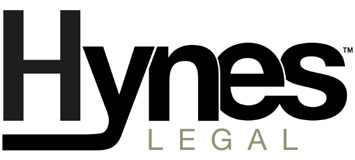The different ‘styles’ of management rights businesses
A ‘vanilla’ management rights business is one that comes with a standalone unit (with an office component of some type forming part of it) and the business, which will usually be a caretaking agreement, and letting agreement and a bundle of letting appointments.
As time goes by, we are seeing variations to this traditional structure in a number of ways.
Different management right structures
Obviously, a different management rights structure raises different issues that need to be considered. In order to provide an idea on these variations we have listed some of the more common ones below.
More than one lot
This usually occurs when the office lot is on a separate title. There are increased costs in holding two lots (rates and levies being the start). There are also increased costs in the purchase and sale process with the extra conveyances. The benefit is that you get two votes at any general meeting (yes you can vote on motions that are yours – click here). Two votes might not mean much until you find yourself in a tight voting situation on a variation to your agreements where every vote in your favour is like gold.
Not owning a lot
People chasing a pure management rights return love this style, as they do not have to buy a lot with the corresponding lower investment return. The downside is that you do not have a vote at general meetings, and therefore no right to be involved at general meeting level as you are purely a contractor, not an owner. You may also need to secure the right to operate onsite, which usually comes with an occupation authority over part of a common property or a long term lease over a unit from an investor. That is obviously not as secure as holding a piece of real estate that you actually own and can operate from.
Banks can also be a little bit tighter on funding ratios without the security of real estate and if you are not living on site you will also need a full real estate agent licence.
Different styles of agreements
Some bodies corporate have more than one ‘caretaking’ style agreement. This agreement might relate to additional services not covered by the original caretaking agreement, or it could relate to services provided to individual owner’s lots. Again, there are usually some additional costs in any purchase or sale, but depending on how the agreements are structured, there can be an additional legal benefit in terms of having different sets of income in different agreements and not having it all bundled into one agreement. This can provide some asset protection if something goes wrong with the other agreement.
More than one scheme
We have plenty of clients who have ended up purchasing the adjoining management rights business to their own. This leads to some economies of scale in terms of costs and an increase in the size of your business. The downside to this is usually that you also have to purchase a lot in the adjoining scheme. We have worked with clients to excise lots from that adjoining scheme in certain occasions so that they end up holding only one lot and effectively operating two businesses. Managed correctly, this provides the ability to sell it in tandem or separately and also ensures that there is not as much money tied up in the lower returning real estate component.
The trick here is licensing, and the magic word is ‘contiguous.’ If a public road does not separate the schemes, you can operate them under your resident letting agent licence. Otherwise, you will need a full real estate agent licence.
Outside lettings
These occur relatively frequently. It means that the buyer is going to need a full licence to run them (as do you while you are doing it). In this variation, a different multiplier is usually applied to the outside letting income, as outside lettings are not ‘true’ management rights letting appointments.
From a legal perspective, it is important to ensure that your agreements and by-laws allow you to manage outside rentals, as each management rights set up is different and there is no ‘one size fits all’ approach to this.
Sales (both inside and outside the scheme)
We have some clients who end up making more from selling real estate than they do from managing it. Obviously, you need a full licence (or access to one via another arrangement). Management rights valuations we have seen are yet to include any of this income as part of the management rights income (or apply a multiplier to it), but the ability to earn extra income may well attract a wider range of buyers.
Again, from a legal angle, it is important to ensure that your agreements and by-laws allow you to sell real estate. Sometimes, the agreements and by-laws will draw a distinction between the sale of units in the scheme and units outside the scheme.





